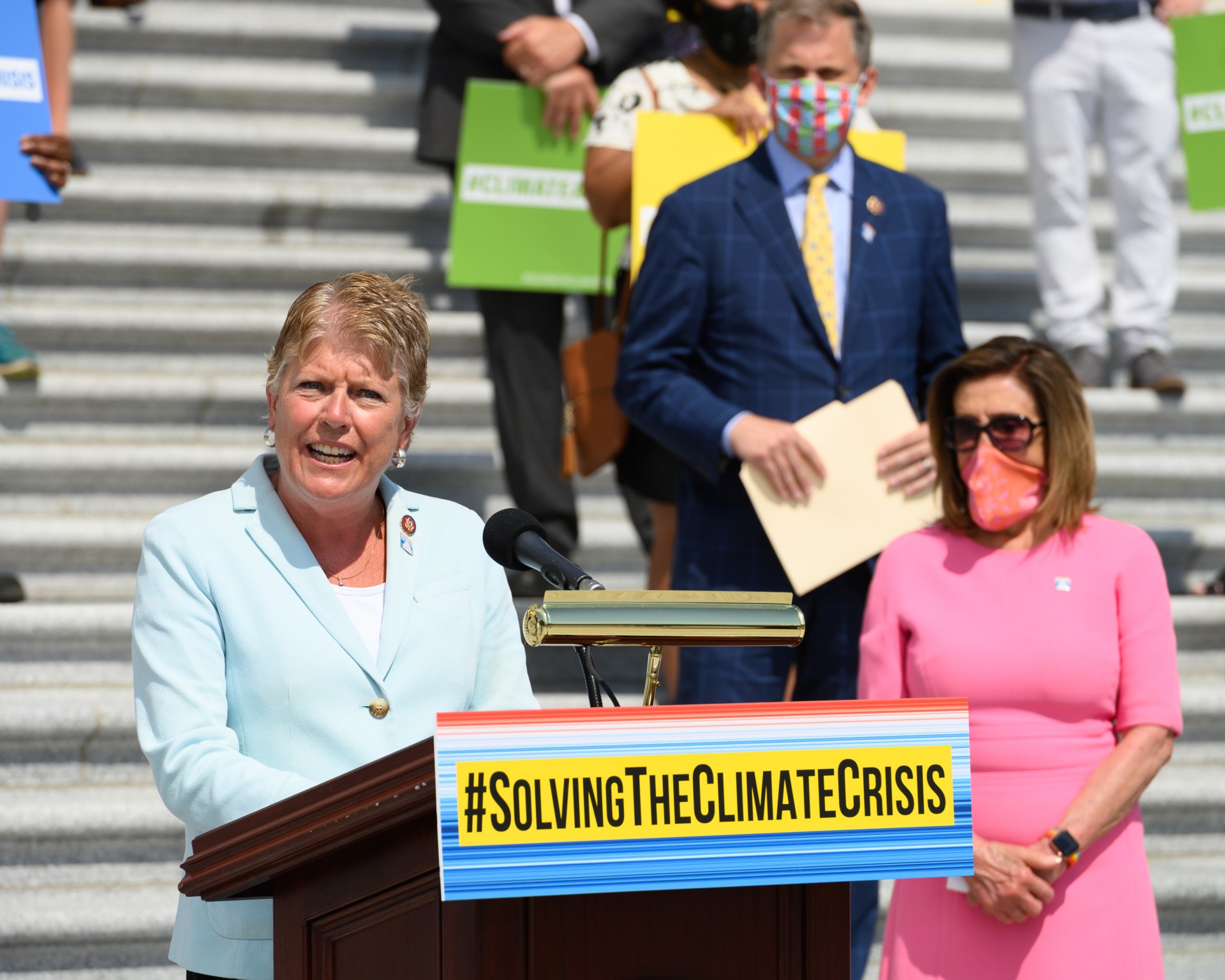
Washington, DC – Today, Congresswoman Julia Brownley (D-CA) introduced the Methane Border Adjustment Mechanism Act, which would establish a tax on methane emissions from foreign oil and natural gas producers. Specifically, the bill would expand on the domestic methane fee enacted by the Inflation Reduction Act by extending the same fee to any country wishing to export oil or gas to the United States, thereby leveling the international playing field for U.S. producers while ensuring consistency with international trade agreements and World Trade Organization (WTO) standards.
“Methane is a powerful greenhouse gas, with about 80 times the warming power of carbon-dioxide on a 20-year horizon. In fact, estimates suggest that at least 25 percent of the rise in global temperatures since the Industrial Revolution is due to methane emissions. But the impacts of methane are not limited to our environment – methane is also a key contributor to the formation of ground level ozone and particulate pollution that pose concerning health risks for the American public,” said Congresswoman Julia Brownley.
“As leaders for sustainability on the global stage, the United States is taking the necessary action to reduce harmful methane emissions. Establishing a Methane Border Adjustment Mechanism (MBAM) would incentivize other countries to meet our nation’s climate standards while reducing the emissions that contribute to global climate crisis,” added Brownley.
“The United States can take advantage of its unique position in the global oil and gas market by enacting Congresswoman Brownley’s Methane Border Adjustment Mechanism Act,” said Catherine Wolfram, Professor of Energy Economics at MIT Sloan School of Management. “It levels the global playing field for United States producers by incentivizing foreign exporters to clean up their oil and gas production, it doesn’t cost the taxpayer anything, and it addresses the global nature of climate change by encouraging other oil and gas importers to follow the lead of the United States. For anyone hoping to reign in methane emissions on a global level, the MBAM Act is a no brainer.”
“Congresswoman Brownley’s Methane Border Adjustment Mechanism Act is a win for global climate justice, workers, and innovation. At a key moment, her bill has identified a revenue generator that rewards the U.S. for environmental standards and punishes polluters for heating the planet. Perhaps most significantly, the bill includes a framework to protect the competitiveness of manufacturing breakthroughs fostered by the Inflation Reduction Act and Bipartisan Infrastructure Law by extending the methane fee to industry. This is a crucial step to decarbonize and modernize sectors like steelmaking and fertilizer,” said Harry Manin, Sierra Club Deputy Legislative Director, Industrial Policy & Trade.
“Eliminating methane leakage from the oil and gas industry is one of the most immediate, cost-effective climate wins that we can achieve together in this decisive decade,” said TJ Conway, a principal at the Rocky Mountain Institute. “By holding U.S. oil and gas imports to the same standard as domestic sources, the MBAM would send an important market signal to international suppliers that they need to rapidly slash methane emissions.”
“EDF applauds Representative Brownley for putting solutions on the table to address the critical issue of methane emissions globally. Rep. Brownley’s legislation, the Methane Border Adjustment Mechanism Act, would establish a key set of tools to further reinforce the landmark Methane Emissions Reduction Program. It is critical that global gas markets recognize the cost that methane pollution imposes on people and the planet and that the oil and gas industry achieve ‘near zero’ emissions by the end of the decade, as many companies committed to do this past December at the UN climate conference in Dubai,” said Joanna Slaney, Associate Vice President for Political Affairs with the Environmental Defense Fund. “Methane is a highly potent greenhouse gas, over 80 times more powerful than carbon dioxide in the near term, and human-caused methane emissions drive about 30% of current global warming. Addressing methane pollution through all available means is critical to addressing the climate crisis.”
The full text of the Methane Border Adjustment Mechanism Act can be found here.
###
Issues: 118th Congress, Climate Crisis, Energy and Environment